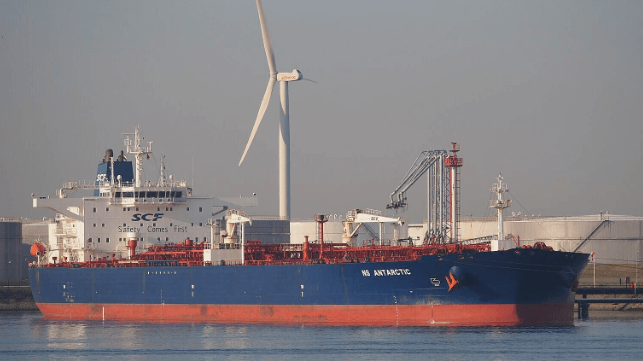Despite Sanctions, Sovcomflot is Making a Healthy Profit

Despite Western interference with its work, Russian state tanker operator Sovcomflot is still shipping oil and making a healthy profit, a reflection of its resilience and of Washington's reluctance to sanction Russian energy exports.
Sovcomflot (SCF) turned a net profit of more than $300 million on revenue of $1 billion in the first half, a comfortable 30 percent margin. In an earnings statement, the firm said that its long-term contracts and favorable tanker market conditions kept earnings aloft - if not quite as high as the same period last year.
SCF noted the "backdrop of increasing sanctions pressure from unfriendly countries," but said that it would continue its "systematic work" to overcome these impediments.
While sanctions on Sovcomflot are in place, they are limited in scope. The U.S. Treasury announced in February that it had sanctioned SCF, but made no changes to the company's preexisting listing, which dates back to 2022. The listing allows any lawful transaction with Sovcomflot, except for financing transactions involving long-dated debt or new equity.
The Treasury did impose sanctions on 14 specific Sovcomflot vessels, but the department emphasized that the rest of Sovcomflot's tankers are still available for any charterer to use. SCF publicly claims to own 147 ships - ten times as many as the number sanctioned.
In June, the EU sanctioned Sovcomflot and its CEO, Igor Tonkovidov, imposing an asset freeze and travel ban for "enabling the Kremlin to finance its war of aggression against Ukraine." It also sanctioned a list of specific SCF vessels, along with a variety of bulkers and freighters that serve Russian operations in Ukraine.
Sanctions measures have had an effect on SCF, even if limited, Tokovidov told Reuters earlier this year. He told reporters that the U.S. Treasury's actions were "limiting our geography and commercial prospects."

that matters most
Get the latest maritime news delivered to your inbox daily.
SCF may be a visible target, but foreign-held "shadow fleet" tankers with obscure ownership handle the majority of Russia's export volume, and these vessels are even more willing to operate in a gray zone. "The [shadow] fleet serves the lion's share of [Russian] oil exports. These are not bright horses, but old ships. This is a challenge for insurance companies," Tokovidov told Reuters.
He also warned of the "separation of the world’s trade fleet into antagonistic camps," and the "destruction of safety culture" created by sanctions on Sovcomflot.
